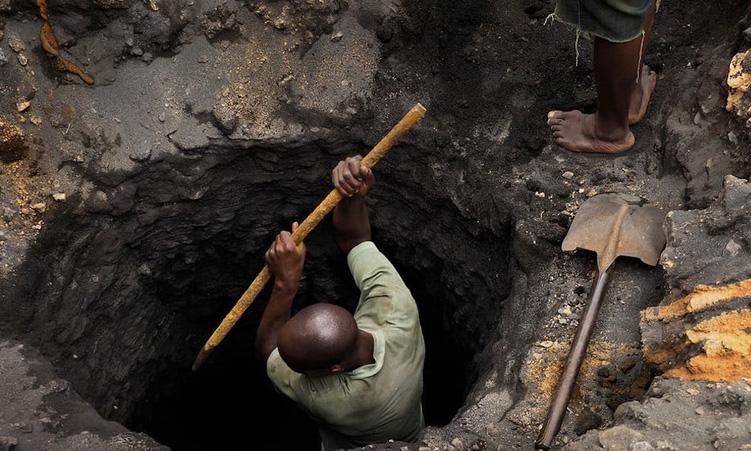PRESIDENT Hifikepunye Pohamba yesterday declared the floods in northern and northeastern Namibia an emergency.
“Thus, the necessary interventions must be put into operation to face this emergency,” a sombre-looking Pohamba told a media briefing at State House in Windhoek. Thousands of people have been displaced, communal farmers have lost around 25 000 animals and 17 schools in the Ohangwena Region alone have been adversely affected.”This situation repeats itself in the Oshana and Omusati regions,” Pohamba said.The Head of State said he had no other option but to declare an emergency with an appeal to the international community to assist with blankets, food and tents in the short term, while serious reconstruction of bridges, schools and medical facilities will be needed in the long term.”It is necessary that Government acts immediately and that the necessary steps are taken timeously to avert a crisis which could grow out of all proportion,” he said.The Emergency Management Unit in the Office of the Prime Minister has been mandated to co-ordinate the relief effort and Pohamba invited partners to work closely with them.The President said people in the northern regions were facing a crisis of unprecedented proportions.”This could be the worst such disaster in many years.As a result, the survival of a large percentage of our population in Namibia is under serious threat,” he said.He said the temporary shelters for flood victims at the Ongwediva Trade Fair and Oshakati soccer stadium had become a health risk and there were fears of a disease outbreak, with the Ministry of Health working actively to prevent it.”The Ongwediva facility is no longer able to sustain the numbers of people, especially the sanitation.People of my age are saying that this is the (most) serious flood experienced in many years,” the 72-year-old Pohamba said.People living in the temporary shelters have been complaining about a lack of privacy, long queues at toilets, and illnesses spreading, especially among children.Following the floods, widespread crop losses were expected, with a negative impact on communities who depend heavily on subsistence farming.”As a result, large quantities of cereal will have to be sourced in order to prevent widespread hunger.The 2007-9 rainy season was delayed in the North.This significantly reduced crop-growing conditions and are likely to reduce the yield prospects by at least 40 per cent compared to 2006-7 harvest.In this context, we must act quickly,” the President said.Many communal farmers have reduced the areas under cultivation by as much as 50 per cent due to waterlogged fields and unavailability of draught animals, which were in a poor state due to drought.”My Government is also very concerned that a recent outbreak of army worms in the Oshana and Oshikoto regions pose a major threat to crops and pasture,” the President said.Grazing pastures in large parts of the northern communal areas are poor as a result of excessive water and will not be able to sustain livestock farming.Pohamba said more floodwater had arrived from Angola recently while forecasts indicated that more rain was still to come.”This state of affairs is likely to aggravate the already desperate situation,” Pohamba said.* The private sector launched a flood emergency fund two weeks ago with Deputy Prime Minister Libertina Amathila as its patron.Contributions to the fund can be paid into the following account number: The Namibia Disaster Relief Fund, FNB Bank Account No: 621 714 950 23, branch code: 281 173.Impact of floods: * Farmers have lost 25 850 animals * 17 schools in Ohangwena affected * 9 schools in Kabbe constituency affected * Yield prospects reduced by 40% * Cultivation area reduced by 50%Thousands of people have been displaced, communal farmers have lost around 25 000 animals and 17 schools in the Ohangwena Region alone have been adversely affected.”This situation repeats itself in the Oshana and Omusati regions,” Pohamba said.The Head of State said he had no other option but to declare an emergency with an appeal to the international community to assist with blankets, food and tents in the short term, while serious reconstruction of bridges, schools and medical facilities will be needed in the long term. “It is necessary that Government acts immediately and that the necessary steps are taken timeously to avert a crisis which could grow out of all proportion,” he said.The Emergency Management Unit in the Office of the Prime Minister has been mandated to co-ordinate the relief effort and Pohamba invited partners to work closely with them.The President said people in the northern regions were facing a crisis of unprecedented proportions.”This could be the worst such disaster in many years.As a result, the survival of a large percentage of our population in Namibia is under serious threat,” he said.He said the temporary shelters for flood victims at the Ongwediva Trade Fair and Oshakati soccer stadium had become a health risk and there were fears of a disease outbreak, with the Ministry of Health working actively to prevent it.”The Ongwediva facility is no longer able to sustain the numbers of people, especially the sanitation.People of my age are saying that this is the (most) serious flood experienced in many years,” the 72-year-old Pohamba said.People living in the temporary shelters have been complaining about a lack of privacy, long queues at toilets, and illnesses spreading, especially among children.Following the floods, widespread crop losses were expected, with a negative impact on communities who depend heavily on subsistence farming.”As a result, large quantities of cereal will have to be sourced in order to prevent widespread hunger.The 2007-9 rainy season was delayed in the North.This significantly reduced crop-growing conditions and are likely to reduce the yield prospects by at least 40 per cent compared to 2006-7 harvest.In this context, we must act quickly,” the President said.Many communal farmers have reduced the areas under cultivation by as much as 50 per cent due to waterlogged fields and unavailability of draught animals, which were in a poor state due to drought.”My Government is also very concerned that a recent outbreak of army worms in the Oshana and Oshikoto regions pose a major threat to crops and pasture,” the President said.Grazing pastures in large parts of the northern communal areas are poor as a result of excessive water and will not be able to sustain livestock farming.Pohamba said more floodwater had arrived from Angola recently while forecasts indicated that more rain was still to come.”This state of affairs is likely to aggravate the already desperate situation,” Pohamba said.* The private sector launched a flood emergency fund two weeks ago with Deputy Prime Minister Libertina Amathila as its patron.Contributions to the fund can be paid into the following account number: The Namibia Disaster Relief Fund, FNB Bank Account No: 621 714 950 23, branch code: 281 173.Impact of floods: * Farmers have lost 25 850 animals * 17 schools in Ohangwena affected * 9 schools in Kabbe constituency affected * Yield prospects reduced by 40% * Cultivation area reduced by 50%
Stay informed with The Namibian – your source for credible journalism. Get in-depth reporting and opinions for
only N$85 a month. Invest in journalism, invest in democracy –
Subscribe Now!










